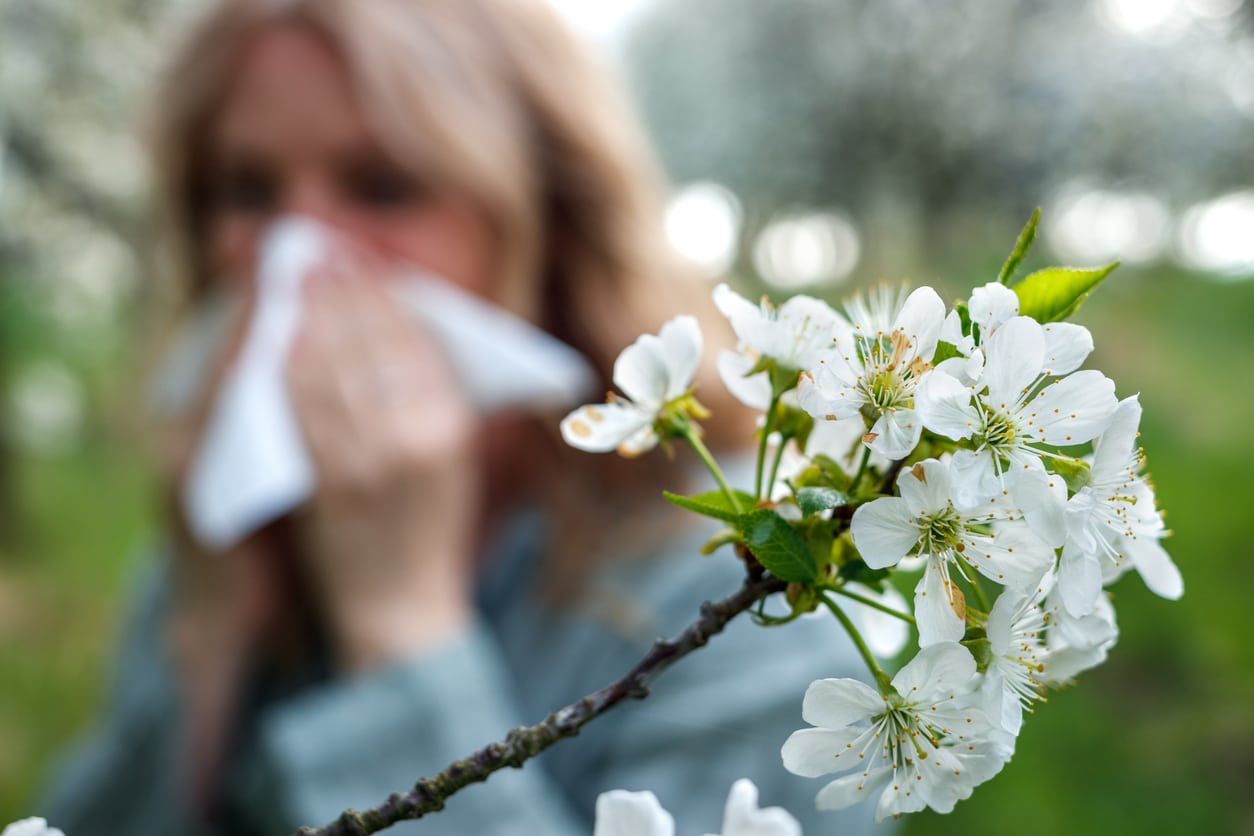Hay fever, also known as allergic rhinitis, is a common impact of environmental allergies and affects approximately 81 million people in the U.S. each year.
As your city blooms with its lush landscapes and diverse plant life, many are left struggling with the symptoms of this seasonal affliction. Understanding the common causes, peak seasons and treatment options can help better prepare you for allergy season.
Common Causes

In Salem, hay fever is primarily triggered by pollen from trees, grasses and weeds. The major culprits include:
- Trees: Alder, birch, cedar, cottonwood and oak release large amounts of pollen that can trigger allergic reactions.
- Grasses: Ryegrass and Kentucky bluegrass are prevalent in Salem and are significant allergens during the late spring and summer months.
- Weeds: Ragweed, which blooms in summer, is a common allergen, alongside other weeds like pigweed and plantain.
Peak Seasons and Symptoms
The timing of hay fever allergy symptoms in Salem typically peaks in March, April, June and September but can be present year-round.
Hay fever symptoms are often like those of a cold without the fever. Common symptoms include:
- Sneezing
- Runny or stuffy nose
- Itchy eyes, nose, or roof of the mouth
- Watery, red, or swollen eyes (conjunctivitis)
- Fatigue, often due to poor quality sleep from persistent symptoms
These symptoms can become more than just a nuisance, affecting daily activities and overall quality of life.
Treatment Options
Managing hay fever effectively involves a combination of prevention and treatment strategies:
- Avoidance: Keep windows closed during high pollen days and use air purifiers to reduce indoor allergens. Track local pollen forecasts here and try to stay indoors when pollen counts are high. In the springtime, walks through Riverfront City Park could be particularly troublesome due to tree pollen.
- Medication: Over-the-counter antihistamines, decongestants and nasal corticosteroids can alleviate symptoms.
- Immunotherapy: For severe cases, allergen immunotherapy, such as allergy shots or sublingual tablets, might be recommended. These treatments involve exposing the body to small amounts of allergens to build up resistance over time.
For Oregon residents, being aware of what triggers hay fever and understanding how to manage it can make the difference between suffering through the seasons and enjoying the landscape year-round. If over-the-counter medications do not relieve symptoms, it may be beneficial to consult with an allergist who can provide a more personalized allergy treatment plan. By taking proactive steps, individuals with hay fever can embrace spring and fall with fewer interruptions.
To learn more or to schedule an appointment, contact Willamette ENT & Facial Plastic Surgery today.
“I came to be under Dr. Donovan's care during a medical emergency at the hospital. The care I received that day and in every interaction after, at Willamette ENT has been prompt, professional and very thorough. I feel very well cared for.”